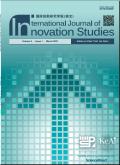食品安全关注进口农水产品风险认知中的中度安全关注
IF 5.3
Q2 MANAGEMENT
引用次数: 0
摘要
由于政治、经济和环境条件的迅速变化,全球对与进口食品消费有关的安全风险的关注正在增加。这些担忧在很大程度上是感性的,揭示了现有文献中关于食品风险意识的差距,原因有两个。首先,食品安全意识被挖掘的同时,食品安全意识在很大程度上被忽视了。其次,食品安全和食品安全的概念经常被交替使用,但在检查进口货物时应明确区分和比较分析。本研究运用风险感知理论(RPT),将食品安全重要性定位为感知安全风险的基线预测因子,同时引入食品安全重要性作为影响感知安全风险表现的调节因子。使用来自韩国505名受访者的调查数据,我们对这一概念模型进行了测试。研究发现,食品安全重要性越高,食品安全重要性对感知风险的影响越弱。这表明,在高度关注粮食供应和负担能力的情况下,与安全有关的担忧往往会减少。这些见解对旨在在体制和治理框架内平衡食品安全和粮食保障的政策设计具有重要意义。本文章由计算机程序翻译,如有差异,请以英文原文为准。
Food security concerns moderate safety concerns in the risk perception of imported agricultural and aquatic products
Global concerns about the safety risks associated with imported food consumption are increasing due to rapid changes in political, economic, and environmental conditions. These concerns, which are largely perceptual in nature, reveal a gap in the existing literature on food risk awareness for two key reasons. First, while food safety awareness has been explored, food security awareness has been largely overlooked. Second, the concepts of food safety and food security are often used interchangeably, though they should be clearly distinguished and analyzed in comparison when examining imported goods. This study applies risk perception theory (RPT) by positioning food safety importance as the baseline predictor of perceived safety risk while introducing food security importance as a moderator that influences the manifestation of this perception. Using survey data from 505 respondents in South Korea, we tested this conceptual model. The findings reveal that the effect of food safety importance on perceived risk becomes weaker when food security importance is high. This suggests that under conditions of heightened concern for food availability and affordability, safety-related apprehensions tend to diminish. These insights have important implications for the design of policies that aim to balance food safety and food security within institutional and governance frameworks.
求助全文
通过发布文献求助,成功后即可免费获取论文全文。
去求助
来源期刊

International Journal of Innovation Studies
Business, Management and Accounting-Strategy and Management
CiteScore
8.10
自引率
0.00%
发文量
23
审稿时长
19 weeks
 求助内容:
求助内容: 应助结果提醒方式:
应助结果提醒方式:


